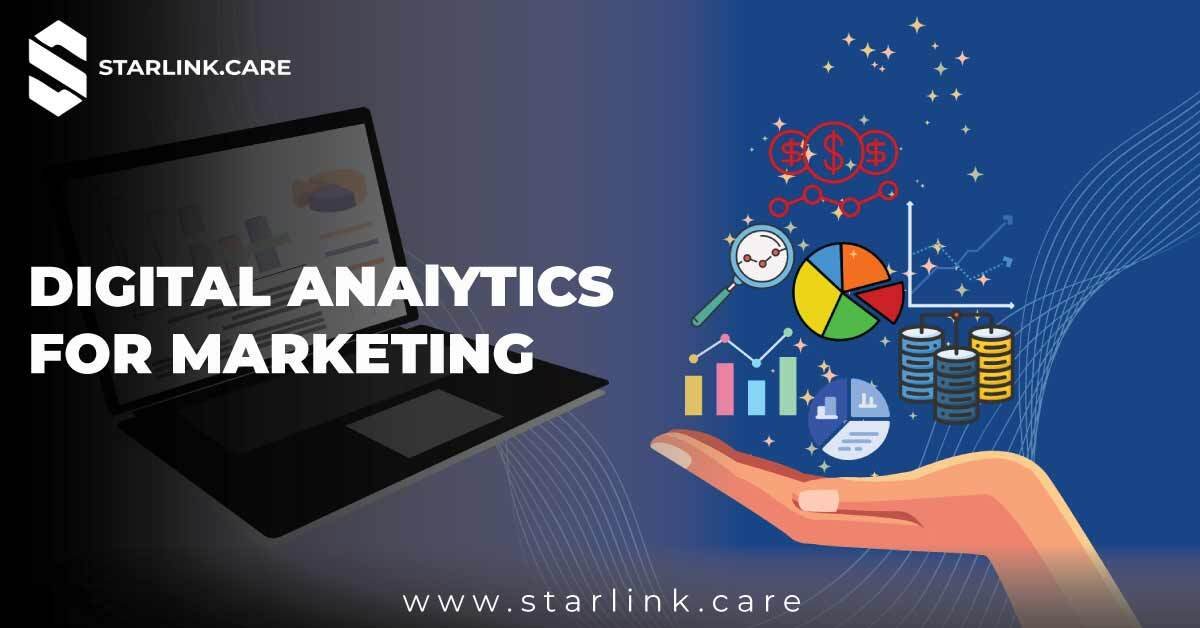A Comprehensive Guide
In today’s data-driven world, digital analytics for marketing has become a cornerstone of successful business strategies. Understanding and utilizing digital analytics can help businesses make informed decisions, optimize marketing efforts, and drive growth. If you’re new to digital analytics or looking to enhance your current strategy, this guide will walk you through everything you need to know to harness the power of digital analytics effectively.
What Is Digital Analytics for Marketing?
Digital analytics for marketing refers to the process of collecting, analyzing, and interpreting data from digital marketing efforts. This data includes metrics from websites, social media, email campaigns, and other online platforms. The goal is to understand how well your marketing strategies are performing and to gain insights that can help you make better decisions.
Why Is Digital Analytics Important?
Digital analytics is crucial for several reasons:
- Data-Driven Decisions: It provides actionable insights that help you make informed decisions rather than relying on gut feelings.
- Performance Measurement: By tracking various metrics, you can measure the effectiveness of your marketing campaigns and identify areas for improvement.
- Optimizing ROI: Analytics helps you understand what’s working and what’s not, allowing you to allocate your budget more effectively and maximize your return on investment (ROI).
Key Components of Digital Analytics for Marketing
To effectively leverage digital analytics, you need to understand the key components involved:
1. Website Analytics
Website analytics involves tracking and analyzing visitor behavior on your website. Tools like Google Analytics provide insights into metrics such as page views, bounce rates, and conversion rates.
Learn more about website analytics here.
2. Social Media Analytics
Social media analytics helps you understand how your content is performing on platforms like Facebook, Twitter, and Instagram. Metrics such as likes, shares, and comments can indicate how well your social media strategies are resonating with your audience.
Explore social media analytics tools here.
3. Email Marketing Analytics
With email marketing analytics, you can track the performance of your email campaigns. Key metrics include open rates, click-through rates, and conversion rates. This data helps you understand how well your emails are engaging your audience.
Read about email marketing analytics here.
4. Conversion Tracking
Conversion tracking involves monitoring the actions users take on your site after interacting with your marketing campaigns. This could include completing a purchase, signing up for a newsletter, or downloading a resource.
Learn about conversion tracking here.
5. Attribution Modeling
Attribution modeling helps you understand which marketing channels are contributing most to your conversions. It allows you to assign credit to different touchpoints in the customer journey, helping you optimize your marketing mix.
Explore attribution modeling techniques here.
Step-by-Step Guide to Implementing Digital Analytics for Marketing
To effectively implement digital analytics for marketing, follow these steps:
1. Define Your Objectives
Before diving into analytics, clearly define what you want to achieve. Are you looking to increase website traffic, boost social media engagement, or improve email open rates? Setting specific, measurable goals will guide your analytics efforts.
2. Set Up Analytics Tools
Choose the right tools to track and analyze your data. For website analytics, Google Analytics is a popular choice. For social media, platforms like Hootsuite offer comprehensive analytics features.
Find the best analytics tools here.
3. Collect Data
Start collecting data from your various marketing channels. Ensure that you’re tracking relevant metrics that align with your goals. For example, if you want to measure the success of a social media campaign, focus on engagement metrics.
4. Analyze the Data
Once you have collected data, analyze it to gain insights. Look for trends, patterns, and anomalies that can inform your marketing strategy. For instance, if you notice a high bounce rate on a landing page, it might indicate that the page needs improvement.
5. Make Data-Driven Decisions
Use the insights gained from your analysis to make informed decisions. Adjust your marketing strategies based on what the data is telling you. If a particular channel is performing well, consider allocating more resources to it.
6. Monitor and Optimize
Digital analytics is an ongoing process. Continuously monitor your metrics and make adjustments as needed. Regularly reviewing your data helps you stay on top of changes in performance and adapt your strategies accordingly.
Real-Life Example
Let’s consider the example of a local coffee shop, “Bean Bliss,” that wanted to boost its online orders. They decided to invest in digital analytics for marketing to understand their customers better.
Bean Bliss set up Google Analytics to track website traffic and conversion rates. They also used Mailchimp to analyze the performance of their email campaigns. By examining the data, they discovered that email promotions had a higher conversion rate than social media ads.
With this insight, they shifted more of their marketing budget towards email marketing and refined their social media strategy. As a result, they saw a significant increase in online orders and customer engagement.
Benefits of Investing in Digital Analytics for Marketing
Investing in digital analytics for marketing offers numerous advantages:
- Informed Decisions: Make decisions based on data rather than assumptions.
- Enhanced Performance: Identify and address areas for improvement to enhance your marketing efforts.
- Optimized Budget: Allocate resources more effectively by understanding which channels deliver the best results.
Conclusion
Digital analytics for marketing is a powerful tool for driving business success. By understanding and implementing analytics, you can make informed decisions, optimize your marketing strategies, and achieve better results. Whether you’re looking to boost website traffic, enhance social media engagement, or improve email marketing, leveraging digital analytics can provide the insights you need to succeed.







